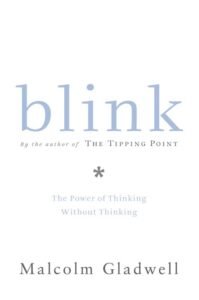|
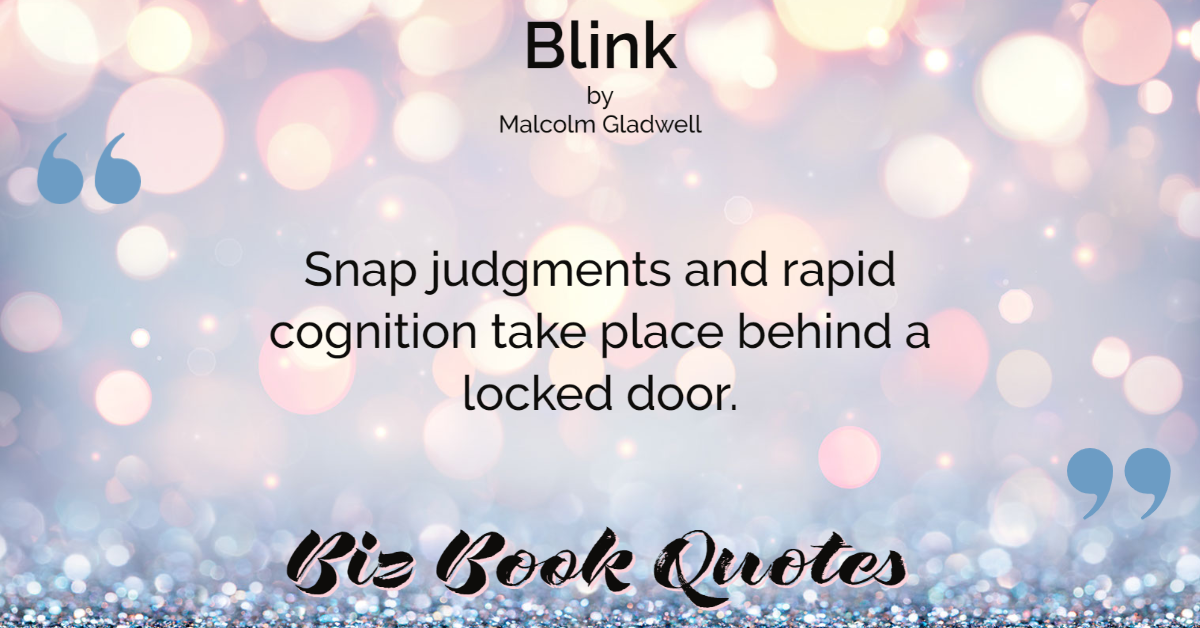
|
Blink:
Snap judgments and rapid cognition take place behind a locked door.
|
51 |
|
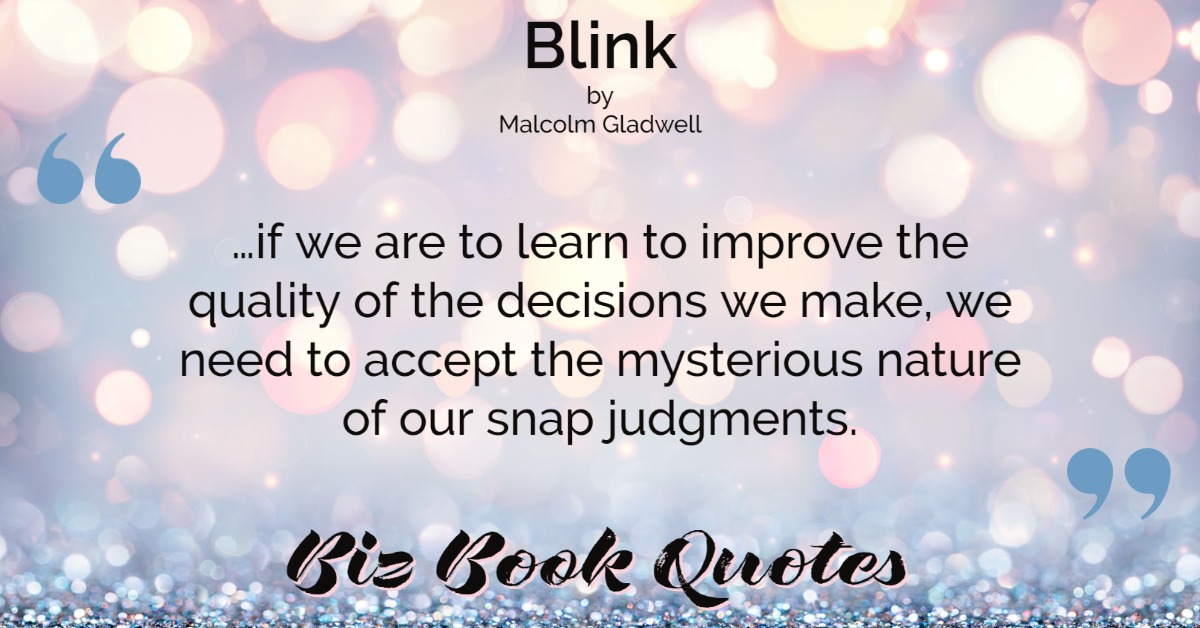
|
Blink:
…if we are to learn to improve the quality of the decisions we make, we need to accept the mysterious nature of our snap judgments.
|
52 |
|

|
Blink:
We need to respect the fact that it is possible to know without knowing why we know and accept that – sometimes – we’re better off that way.
|
52 |
|
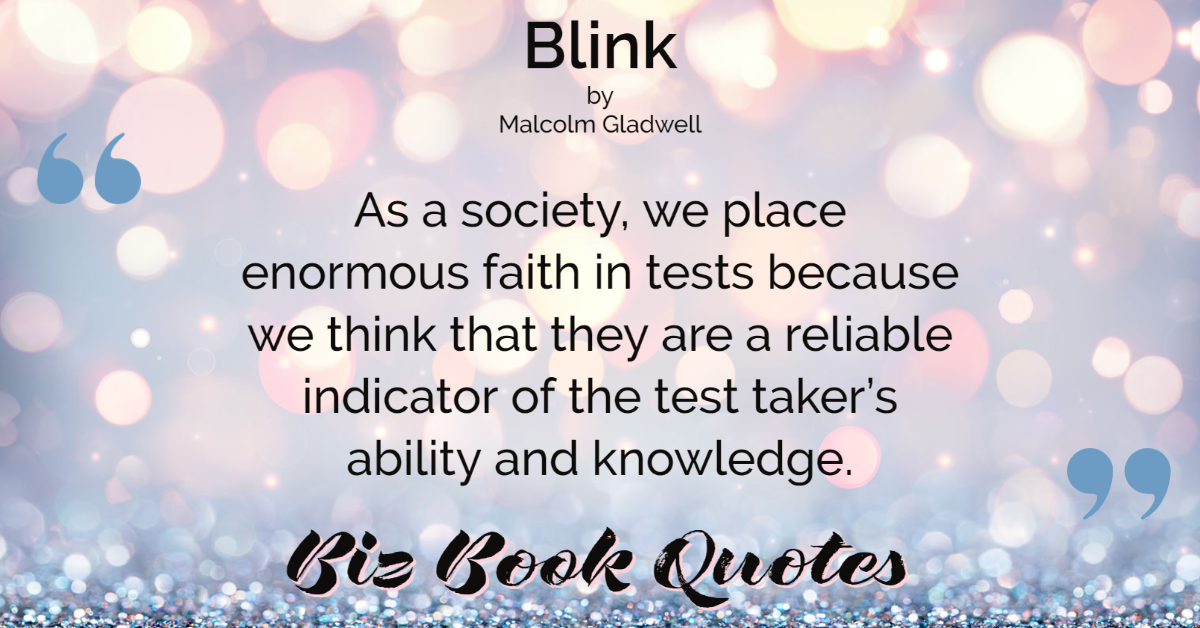
|
Blink:
As a society, we place enormous faith in tests because we think that they are a reliable indicator of the test taker’s ability and knowledge.
|
56 |
|
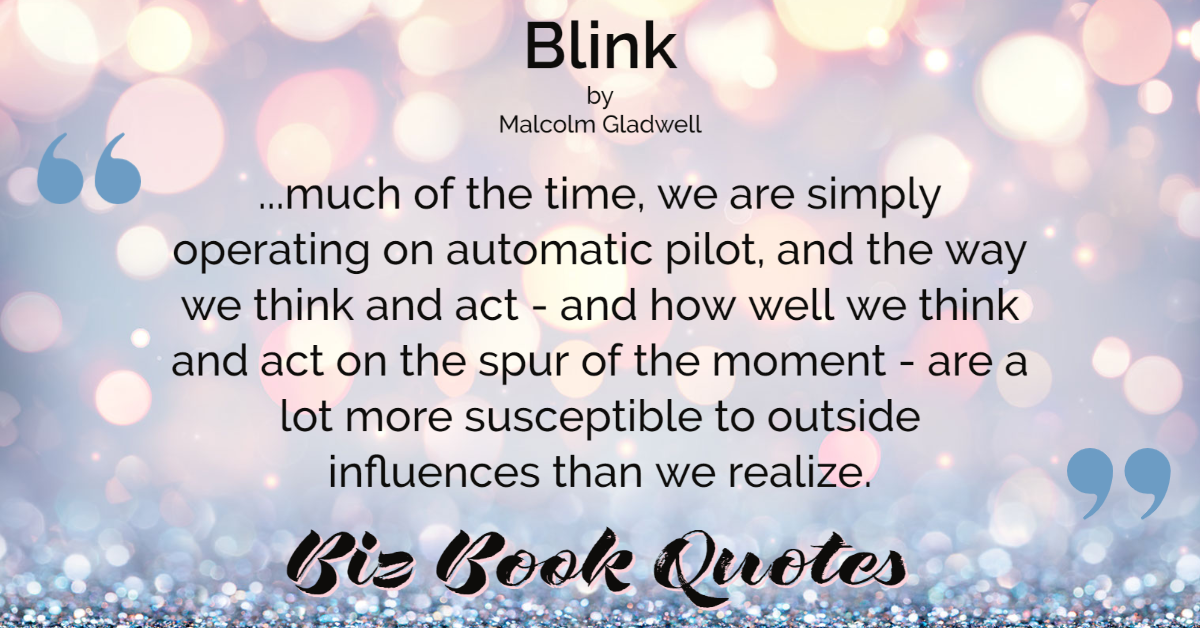
|
Blink:
…much of the time, we are simply operating on automatic pilot, and the way we think and act – and how well we think and act on the spur of the moment – are a lot more susceptible to outside influences than we realize.
|
58 |
|
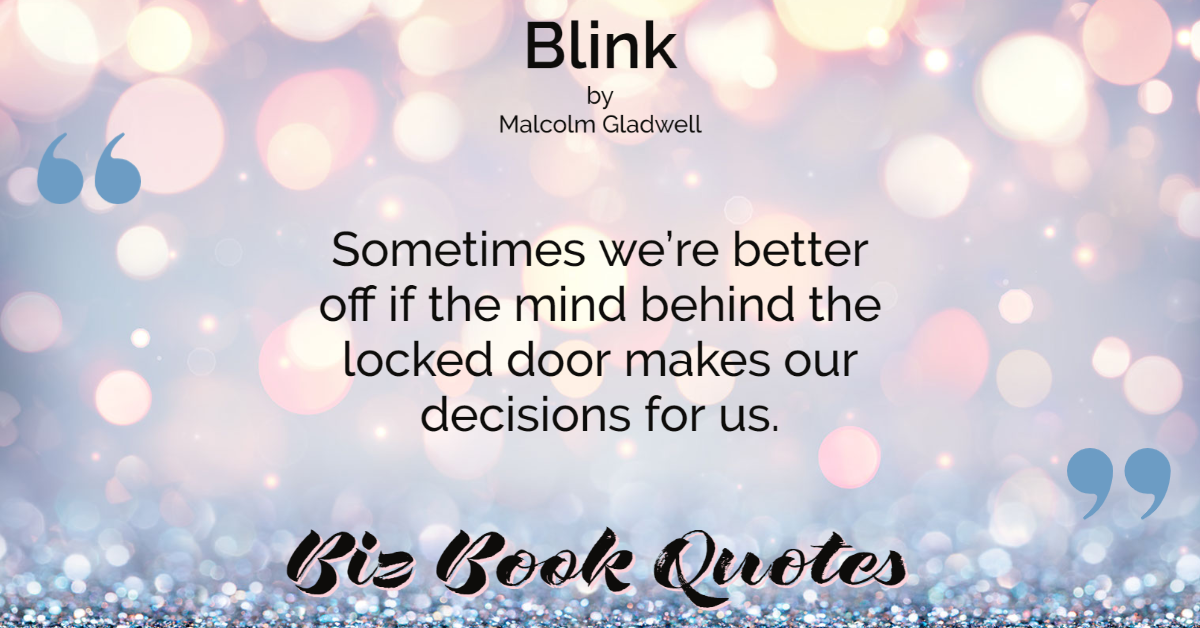
|
Blink:
Sometimes we’re better off if the mind behind the locked door makes our decisions for us.
|
61 |
|

|
Blink:
We’re a bit too quick to come up with explanations for things we don’t really have an explanation for.
|
69 |
|
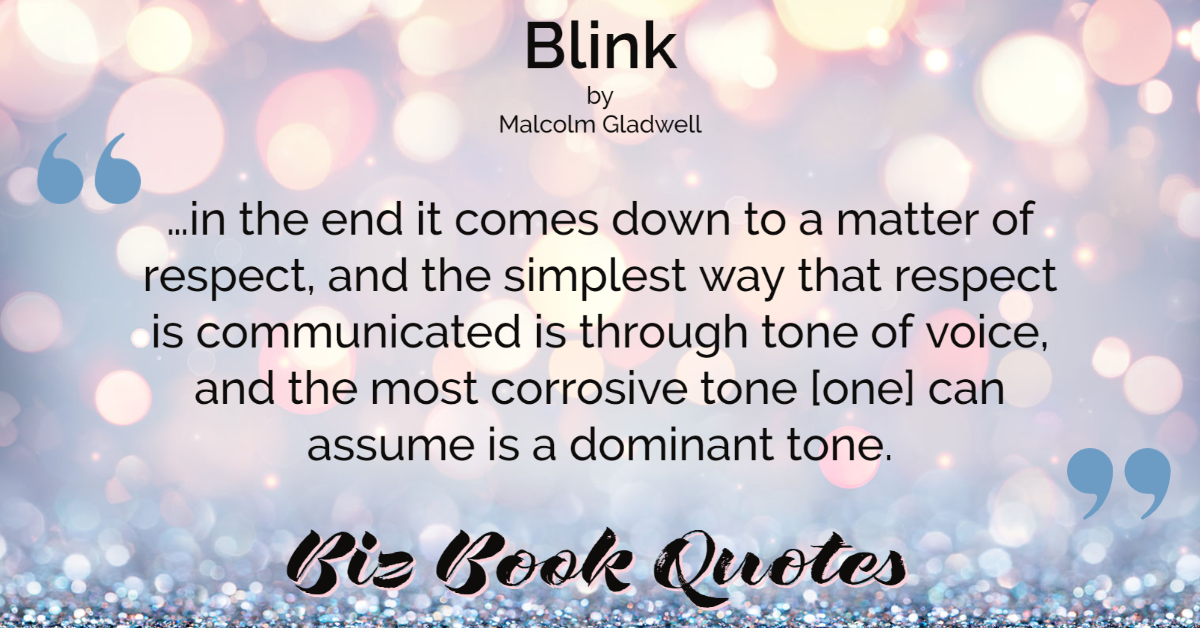
|
Blink:
…our unconscious silently crunches all the data it can from the experiences we’ve had, the people we’ve met, the lessons we’ve learned, the books we’ve read, the movies we’ve seen, and so on, and it forms an opinion.
|
85 |
|
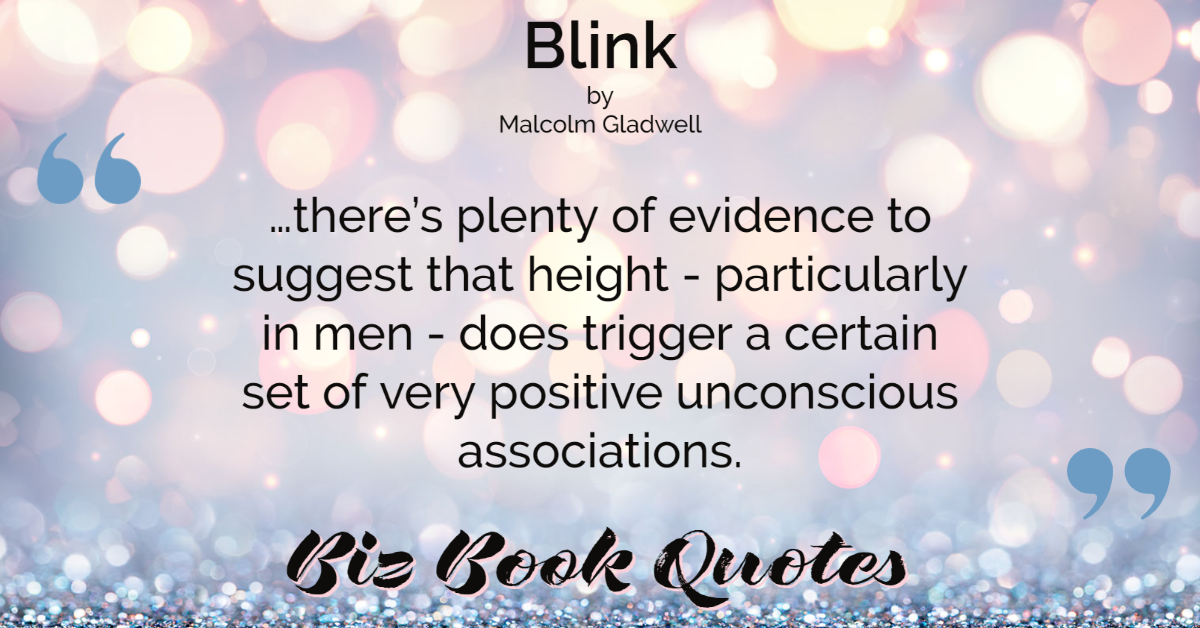
|
Blink:
…there’s plenty of evidence to suggest that height – particularly in men – does trigger a certain set of very positive unconscious associations.
|
86 |
|
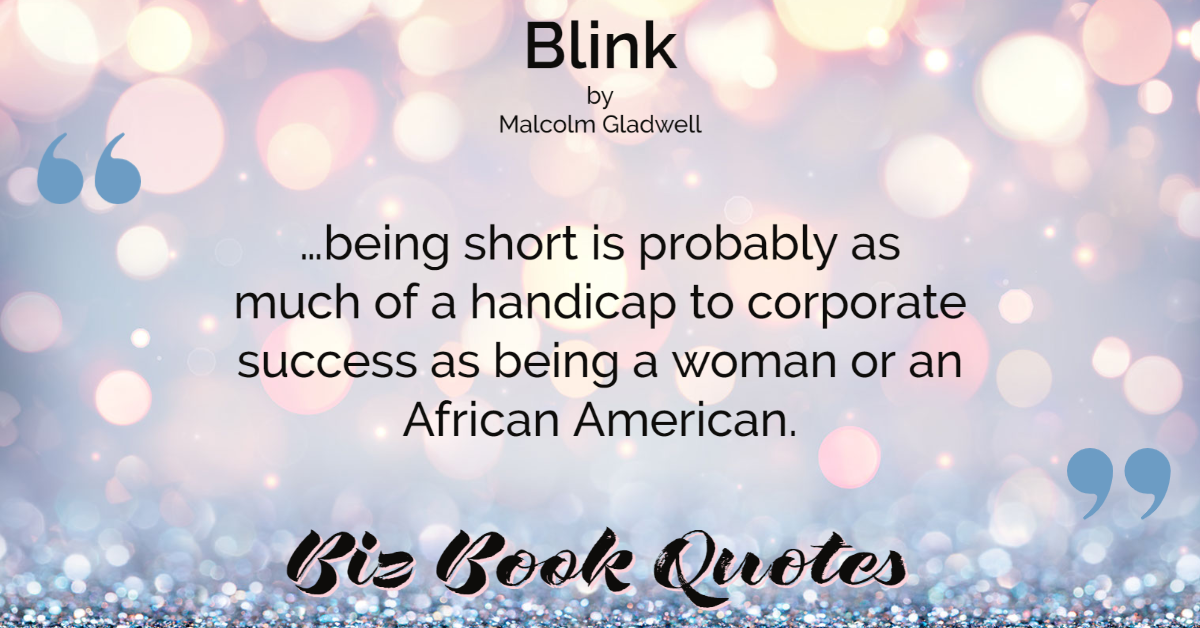
|
Blink:
…being short is probably as much of a handicap to corporate success as being a woman or an African American.
|
87 |
